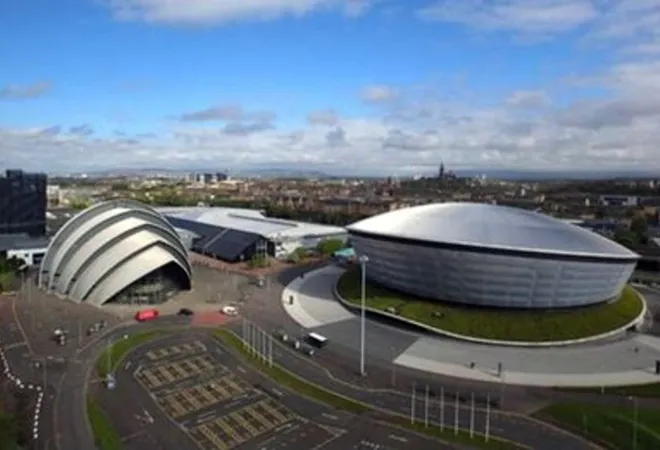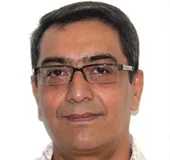
Rebooting economies to business as usual post COVID-19 would make Paris Agreement goals distant that the world can ill afford. Instead, here is an opportunity to take strides towards a cleaner, greener, healthier and a just world.
On March 30, I was posing the question to myself, will coronavirus derail Glasgow? The Press Release of April 01 from the UN Climate Change announced as much without a new schedule. The UN climate change conference, COP26 was set to take place in Glasgow in November 2020. Incidentally, the venue of the conference, SEC Arena might be turned into a field hospital to treat COVID-19 patients.
The preceding COP had its own share of hiccups and the outcome was rather disappointing despite being the longest climate conference ever. Chile was to host the 25th UN climate conference in December 2019 but protests broke out in that country in October. The initial trigger was a raise of about 4% in Santiago’s subway fare during peak hours; the underlying causes were increased cost of living, privatisation and inequality. On 30 October 2019, Chile's president Sebastian Pinera cancelled his county's plans to host the conference. It was a miracle that the two-week long climate conference was held on schedule in Madrid instead. However, negotiators postponed until this year a key decision on global carbon markets. The conference failed to deliver anything of consequence despite common knowledge that global emissions have to drop by 7.6% annually, starting this year, if the Paris accord’s goal of keeping global warming at 1.5 degrees Celsius by the end of the century is to be achieved. This year’s quota of 7.6% drop in global emissions might be achieved or even exceeded courtesy the ongoing pandemic and subsequent lockdown across jurisdictions. This could make negotiators from member states complacent and tempt them to put off hard decisions yet again.
Last year, trouble started toward the end of first week of negotiations when the issue of ‘transparency’– how countries will report their national emissions – came up. Under Article- 4 of the Paris Agreement, Parties are obliged to “prepare, communicate and maintain successive nationally determined contributions (greenhouse gas emissions reduction) that it intends to achieve.” The item had to be postponed because China objected to continuing deliberations on the ground that it was taking focus away from more critical items that political negotiators needed to deal with in the following week. India and a few other developing countries supported China’s position. As a quid pro quo the US and other developed countries got away without the commitment to review efforts towards providing long-term finance as obliged under Article 9 of the Paris Agreement “to assist developing country Parties with respect to both mitigation and adaptation in continuation of their existing obligations under the Convention.”
One group of countries says let’s not talk about committed mitigation actions and the other group says fair enough, let’s not talk about the committed financial resources, as if the at-risk populations at the forefront of impacts of climate change in the two groups of countries do not matter.
Mr. Alok Sharma, the UK energy minister and president of COP26 conference has his task cut out in encouraging member states to complete the negotiations for implementing the Paris Agreement. Perhaps, he also has the opportunity to lead the world towards low-carbon measures and not return to status quo ante by way of the stimulus packages that countries are putting together or have put together to tide over the economic crisis precipitated by the pandemic. Rebooting economies to business as usual or beyond, to lower economic damage will make it harder to deal with the climate crisis which compared to the current health crisis might seem distant. It might be pertinent to recall that the stimulus packages post financial crisis of 2007-08 caused GHG emissions to rebound. The world can ill afford to make the same mistake again.
The views expressed above belong to the author(s). ORF research and analyses now available on Telegram! Click here to access our curated content — blogs, longforms and interviews.




 PREV
PREV


